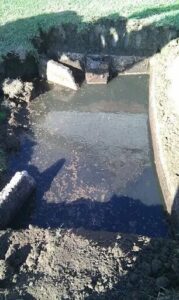
If your home relies on a septic system, regular pumping is essential to keep it functioning efficiently and avoid costly damage. One of the most common questions homeowners ask is: How often should I pump my septic tank? The answer depends on several factors, but with the right knowledge and regular maintenance, you can avoid system failures and keep things running smoothly.
Why Septic Tank Pumping Is Important
Over time, solids build up in your septic tank in the form of sludge and scum. While the wastewater (effluent) exits into the drain field, the solids remain behind and accumulate. If the tank isn’t pumped out regularly, this buildup can lead to system backups, drain field failure, and unpleasant odors—all of which can be expensive and hazardous to your health.
General Pumping Guidelines
On average, most septic tanks should be pumped every 2 to 5 years. However, this is just a general guideline. The actual frequency can vary depending on:
- Household size: More residents mean more wastewater and faster accumulation of solids.
- Septic tank size: Larger tanks can hold more waste and may require less frequent pumping.
- Water usage habits: High water use, such as doing frequent laundry or long showers, can impact how quickly your tank fills.
-
Use of a garbage disposal: Disposals add more solids to your tank and often require more frequent pumping—sometimes every 1 to 2 years.
Example Estimates:
- 1-3 people in a home: Pump every 4-6 years
- 4-5 people: Pump every 3-5 years
- 6 or more people: Pump every 2-4 years
Signs You Might Need Pumping Sooner
Even with a schedule in place, it’s important to watch for signs that your tank might be full:
- Slow-draining sinks or toilets
- Gurgling sounds in plumbing
- Foul odors near the tank or drain field
- Pooling water or lush grass in the drain field area
If you notice any of these, it’s time to call a professional—even if you’re not due for a pumping yet.
Routine Maintenance and Inspections
Regular inspections by a professional can help determine when your tank needs to be pumped. During a service visit, technicians measure sludge and scum layers to determine if pumping is needed—preventing premature or overdue service.
In addition, practicing good septic habits can extend the time between pumpings:
- Don’t flush wipes, hygiene products, or other non-biodegradables
- Avoid pouring grease or harsh chemicals down the drain
- Space out laundry loads to reduce water surges
Partner with T&V Backhoe & Septic Services
If you’re in Collinsville, OK or surrounding areas, T&V Backhoe & Septic Services is your local expert in septic system maintenance. Our team offers inspections, pumping, and customized maintenance schedules based on your household’s needs.
Schedule Your Septic Pumping Today
Stay ahead of septic system issues with a personalized pumping schedule. Call T&V Backhoe & Septic Services at (918) 855-7465 or use our online form to book your next service. We’re here to ensure your septic system runs safely and smoothly—year after year.